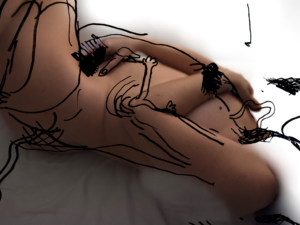During lockdown, writer Diana Weis reflected on the most essential asset of late capitalism: individuality. Perhaps we would be happier without it.
Phase One: Inventory. In those first quiet weeks after the beginning of the pandemic, when the collective state of mind was still oscillating between shock and hope for a quick end, there was an unconditional will to pull something positive from this new state. When the possible space for experience suddenly ended at the inner walls of one’s apartment, this was declared an optimization zone without further ado. The great mucking out began. Or, better: the decluttering.
Minimalism outside equals minimalism on the inside. As we learned from Marie Kondo, we asked ourselves about every piece that was jammed into the apartment, whether it would bring us a deep sense of pleasure. ” Does it spark joy?”
The initial relief of having found a meaningful activity was soon followed by fatigue, and then despair. Because every time, the answer was no. ‘No’ to the olive-green nail polish with a matte finish, ‘no’ to the goldfish-shaped flower vase, ‘no’ to the retro-looking cell phone cover. Had we been completely crazy to drag all of this stuff into our apartment and pay money for it?
It wasn’t long before we wanted to give up. We swore never to buy anything again. We thought about how many H&M dresses it would take to sew a tent, which you would only leave when the world had miraculously settled down.
Then it happened: While penetrating the deepest, darkest corners of the closet, they suddenly came to light, the things that sparked joy. Old photos, old diaries, old letters. Poetry albums in which, under the heading “Hobbies,” page after page of touching simplicity was scribbled: cycling, swimming, reading. They were not things whose surface texture flattered our ego, rather they were testimonies of our relationships to other people.
And with that, the second phase began: regression. The present felt like absorbent cotton; the future was scary. The only really safe place was the past. Suddenly there was a longing for those who had shared a piece of your life with you. People with whom we had laughed, drunk, and argued. We talked to old friends and reveled in what we had experienced together. On social networks, hashtags like #TBT (Throwback Thursday), which appeared under photos of children and young people, were trending. Quite a few lost their nerves, their jobs, their homes and returned to the provinces from the big cities. Risk group or not, travel warning or not: Disasters are best faced with your own family. With people who, while they may not understand you, know you better than anyone else.



